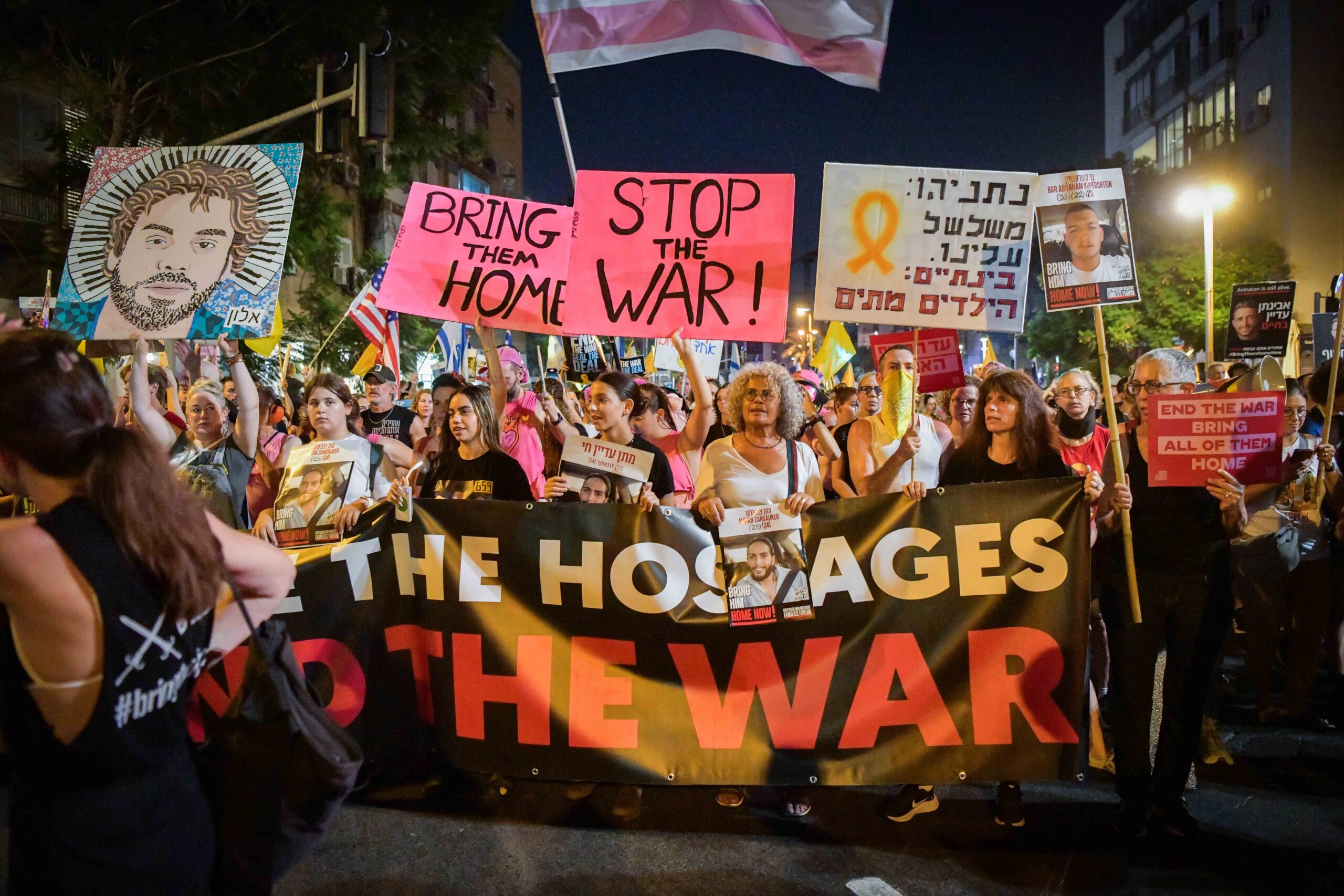President Trump provided his assessment during recent White House briefings that fewer than 20 hostages held in Gaza remain alive, while Israeli officials maintain different figures. The statements have prompted families to seek clarification as international efforts to secure the remaining captives continue.
During a White House press briefing on Friday, Trump stated that “fewer than 20 hostages still being held by terror organizations in Gaza are believed to be alive”. He later elaborated during an Oval Office announcement, saying “there are now 20 living hostages, and it’s not even 20 anymore because probably some of them are no longer with us”.
The president further specified that “The 20 is actually probably not 20 because a couple of them are not around any longer”. These comments represented his current assessment of the situation, evolving from earlier statements in May when he had indicated that “Out of 59, you had 24 that were living, and now I understand that it’s not even that number”.
'I'm the one who got all the hostages out, if it wasn't for me, they wouldn't be out'
— Sky News (@SkyNews) August 22, 2025
Speaking in the Oval Office, Donald Trump talks to the media about the remaining hostages in Gaza, saying 'the situation has to end'https://t.co/JomsP48R8k pic.twitter.com/HMltLaBnJQ
“The situation has to end, it’s extortion and it has to end,” he said, referencing Hamas’s hostage taking and negotiations, and added that he thinks it would be “safer, in many ways,” to free the hostages militarily, instead of through a deal with Hamas.
Israeli officials responsible for hostage affairs maintain their own assessment of the situation. According to recent Israeli intelligence communicated to families, 20 hostages are confirmed alive, with two additional hostages in life-threatening condition, and 28 declared deceased. This would indicate 22 hostages are potentially still living.
Following Trump’s comments, Israeli hostage envoy officials reassured families that there had been no change in their official count, maintaining their assessment despite the president’s different numbers.
A significant aspect of the hostage crisis has been the complete absence of humanitarian oversight. The Red Cross has not been allowed any access to the hostages during 22 months of war, and has faced heavy criticism from Israel and Jewish groups over its failure to do so.
The International Committee of the Red Cross has acknowledged its limitations, with critics describing it as “a glorified taxi service” for its failure to help hostages in captivity, though the ICRC insists it has little power beyond what belligerent parties afford it. The ICRC has also declined to aid in transferring medication to hostages, citing neutrality requirements.
As of June 2025, 148 hostages had been returned alive to Israel, with 105 released in the 2023 ceasefire, five released outside ceasefire frameworks, eight rescued by the IDF, and 30 released during the 2025 ceasefire.
A major hostage-prisoner exchange occurred between January 19 and March 18, 2025, which included eight rounds of exchanges between Israel and Hamas. However, negotiations for the remaining hostages continue to face challenges.
Families of the hostages have demanded clarity about their loved ones’ status following Trump’s statements. Israelis have held some of their largest protests in nearly two years, demanding an end to the war in Gaza and a deal to release the remaining hostages.
The uncertainty surrounding exact numbers has added to families’ distress, particularly given the lack of humanitarian access that would typically provide welfare checks and medical care to captives.
Recent developments have heightened concerns about hostage welfare. New images of emaciated Israeli hostages held in Gaza have horrified Israelis and added pressure on Prime Minister Benjamin Netanyahu to reach a ceasefire with Hamas.
Trump has indicated his administration’s approach to securing releases, stating that hostages will return only when Hamas is “confronted and destroyed”. Hamas officials have indicated acceptance of proposals introduced by mediators, though negotiations remain complex.
The president has also taken credit for previous releases, stating he “got a lot of people” out of Gaza during ceasefire negotiations. The administration continues to work with regional partners and international mediators to secure the release of remaining hostages.
The hostage situation remains a critical humanitarian and diplomatic challenge. While Trump and Israeli officials provide different assessments of how many hostages remain alive, both governments continue efforts to secure their release. The complete lack of international humanitarian access to the hostages represents a significant violation of international norms and adds uncertainty to their current condition. As negotiations continue, families await concrete developments that will bring their loved ones home.




